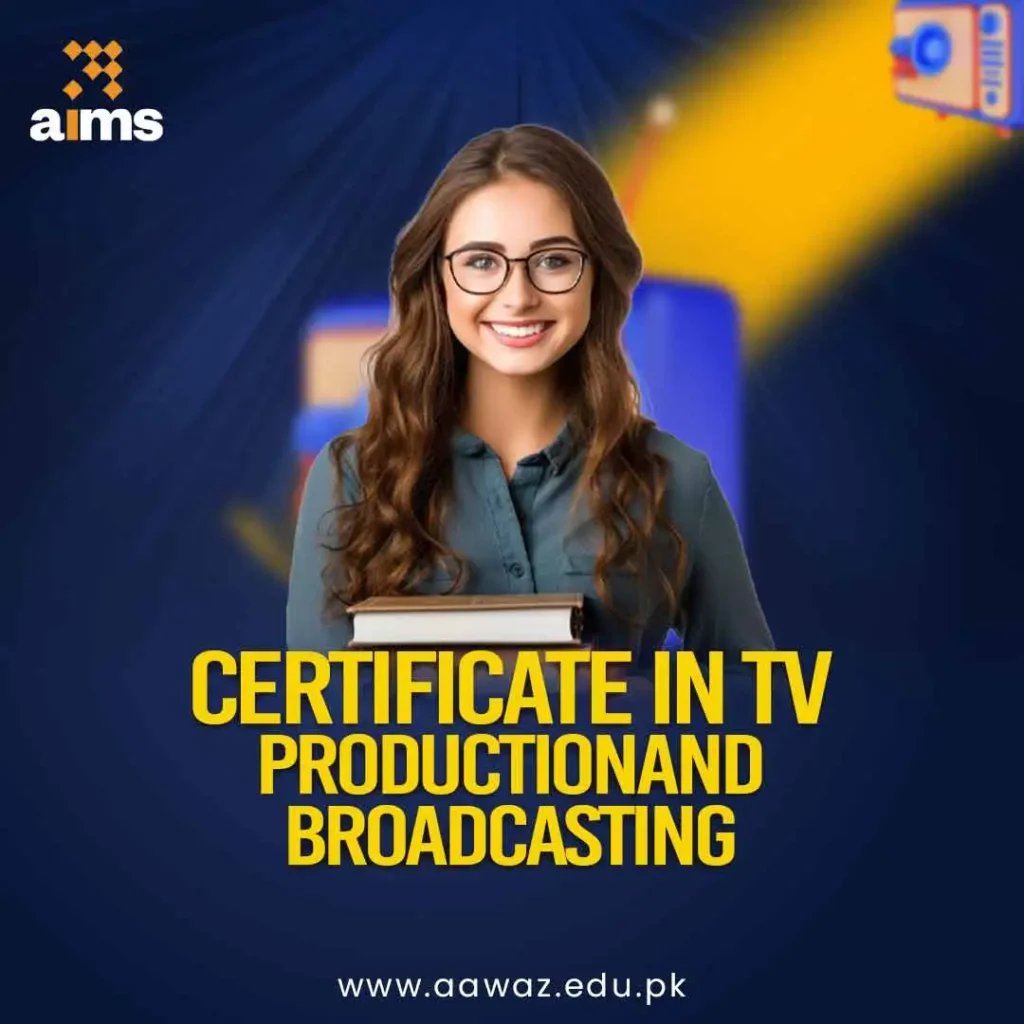TV PRODUCTION AND BROADCASTING COURSE — THE ULTIMATE GUIDE OF LIGHTS, CAMERA ACTION!
INTRODUCTION
TV production and broadcasting are passionate fields that play key roles in digital media. It integrates technical expertise and imagination, shaping how information, entertainment, and storytelling reach audiences.
This course offers a rapid evolution of technology, a comprehensive understanding of the production process, and beyond traditional studios to include digital platforms, from concept development to final broadcast.
This course will give students a complete understanding of the entire TV production process—from conceptualizing ideas to providing polished content to viewers. Whether you want to be a producer, director, camera operator, or editor, these key skills will excel in the television Industry.
Pre-production planning, scriptwriting, camera techniques, lighting, sound design, post-production editing, and live broadcasting are merely some of the steps of production that you will learn about. The impact of digital media on television broadcasting, ethical issues, and Industry developments will also be covered in the course.
Careers in TV Production and Broadcasting
The primary professional routes in Television production and broadcasting range of career prospects, catering to both technical talents and creative insights. You want to be in editing, director, or working behind the scenes, these are the key roles for everyone in this dynamic field.
PRODUCTION ROLES
- Television Producer — Oversees all stages of the production process, from initial vision to final broadcast.
- Production Manager — Coordinates resources, oversees budgeting, and manages logistics.
- Director — Responsible for every camera angle, creative ideas, decision-making, and overall storytelling.
ON-SCREEN ROLES
- Actor/Performer — Reality shows, Acts in TV dramas, sitcoms, and commercial Ads.
- TV Show Host — Reality shows, engages audience in front of the camera, talks in shows, and entertainment programs.
- News Anchor — offers live broadcasting, proposes new tales, and interviews guests.
TECHNICAL ROLES
- Camera Operator — Based on the director’s vision, the camera operator will operate and capture high-quality footage.
- Lighting Technician — Adjusting lighting for different scenes and setups to achieve desired roles.
- Video Editor — Refines content for final broadcasting, adds effects, and assembles raw footage.
WRITING & CREATIVE ROLES
- Scriptwriter — TV shows, engaging scripts for news and documentaries.
- Content Creator — Digital screaming produces original content and Digital social Media platforms.
- Storyboard Artist — sketches scenes before filming and visualizes them.
5. Digital & Emerging Media Roles
- Virtual Production Specialist — Virtual sets for modern TV productions, and work with augmented reality AR.
- OTT – (Over-the-Top) Content Producer — Online live streaming services like Amazon Prime, Prime Video, Netflix for content creation.
- Social Media Manager — engaging audiences and managing TV networks’ digital presence.
Future Trends & Opportunities
With innovation in AI, virtual production, and live streaming, the TV production field is evolving. New career opportunities in Digital broadcasting, Interactive media, and virtual content media creation are all witnessing an increase in employment prospects. Also streaming live platforms like YouTube, Twitter are replacing traditional TV, driving demand for on-demand and content creation.
While sustainability initiatives are pushing for environmentally sustainable strategies, interactive storytelling and citizen journalism are making television more captivating. Professionals need to embrace digital transformation and emerging technologies in order to stay ahead in this rapidly evolving sector.
At The End
Television and Broadcasting Media Industry, digital innovation, Artificial Intelligence, and technology are driving a significant revolution. To remain competitive, Experts must adapt to the shifting environment of streaming platforms, interactive content, and global collaborations. Accepting these advancements will lead to new creative and career opportunities in this ever-evolving field. Remember excellence in education with our short courses are affiliated with KU.
Pre Registration






